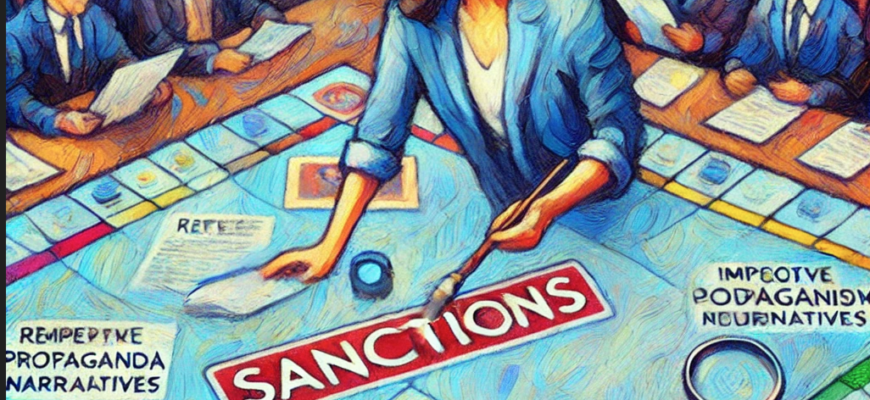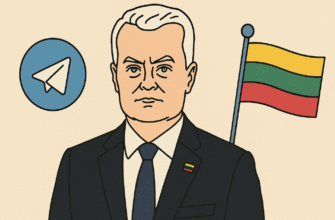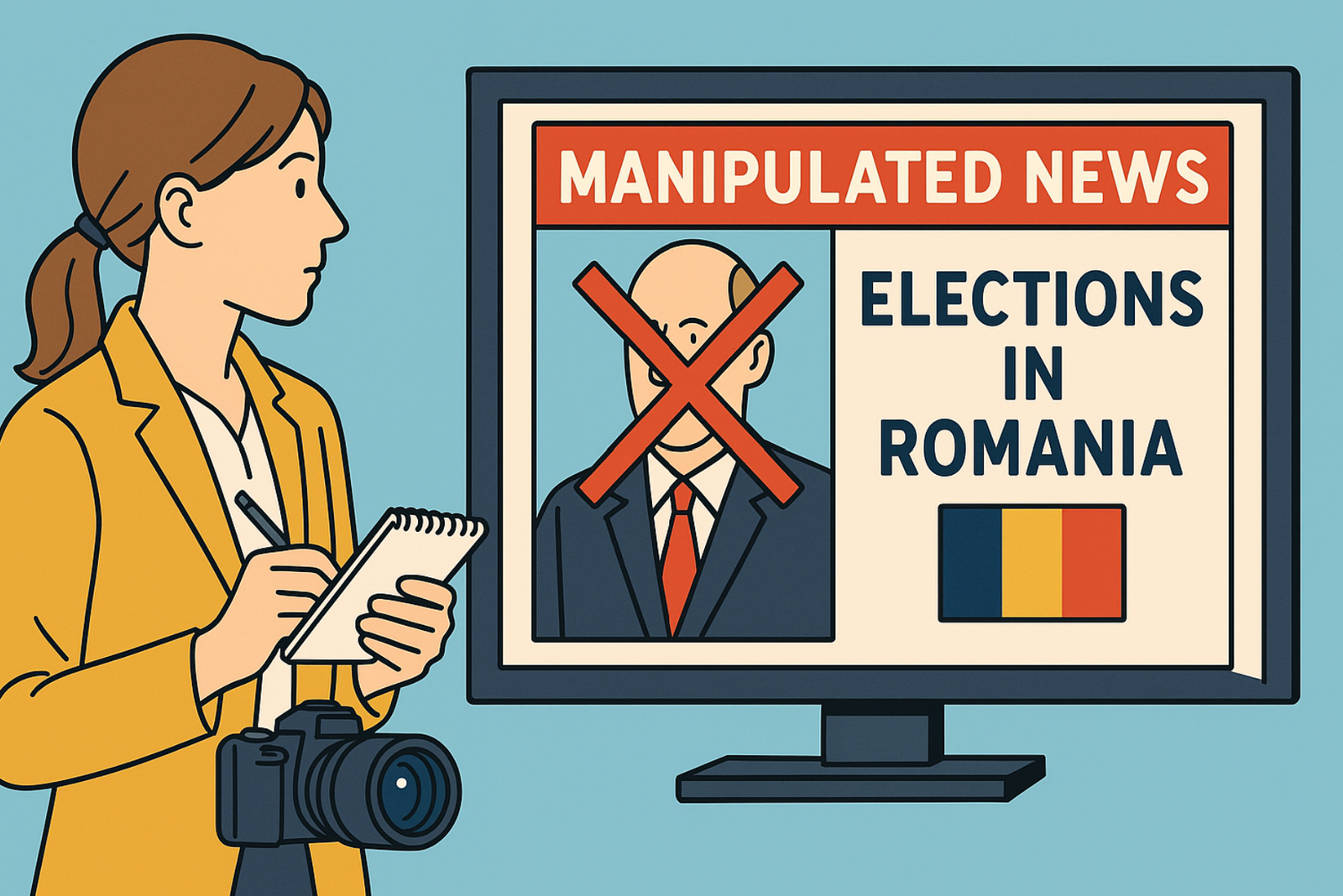Sanctions imposed against the Belarusian regime have become an important tool of international pressure on the current Belarusian authorities, but at the same time, they have caused a significant surge of disinformation in the Belarusian information space. State propaganda and affiliated information sources actively spread false and distorted information about the sanctions, making it difficult for citizens to objectively understand the situation.
We will attempt to analyze the current information situation around the topic of sanctions, examine how this topic is covered in various sources, and show how disinformation penetrates the public space through state and alternative media.
The main goal is to demonstrate the importance of regular fact-checking on issues related to sanctions, as well as to provide recommendations for strategic communications aimed at minimizing the impact of propaganda.
Methodology
Two datasets were used in the preparation of this publication. The first one was based on data collected by the Information Policy Blog on videos posted on Belarusian YouTube channels in October 2024, selecting publications that mentioned sanctions in their descriptions. Then, after transcribing the texts from these videos, the TF-IDF method was applied to extract features from the text data. Using OpenAI API, these texts were analyzed for signs of disinformation narratives.
The second dataset was collected using the Tgstat service, which compiled mentions of the topic of sanctions in Belarusian Telegram channels for the period from September 1, 2024, to November 14, 2024. The text processing procedure was repeated for the collected Telegram data, similar to the first dataset.
Additionally, data from Google services in Belarus was collected using the toolkit provided by Oxylabs as part of Project 4β.
Representation of search results for the query “sanctions” in Google in Belarus:
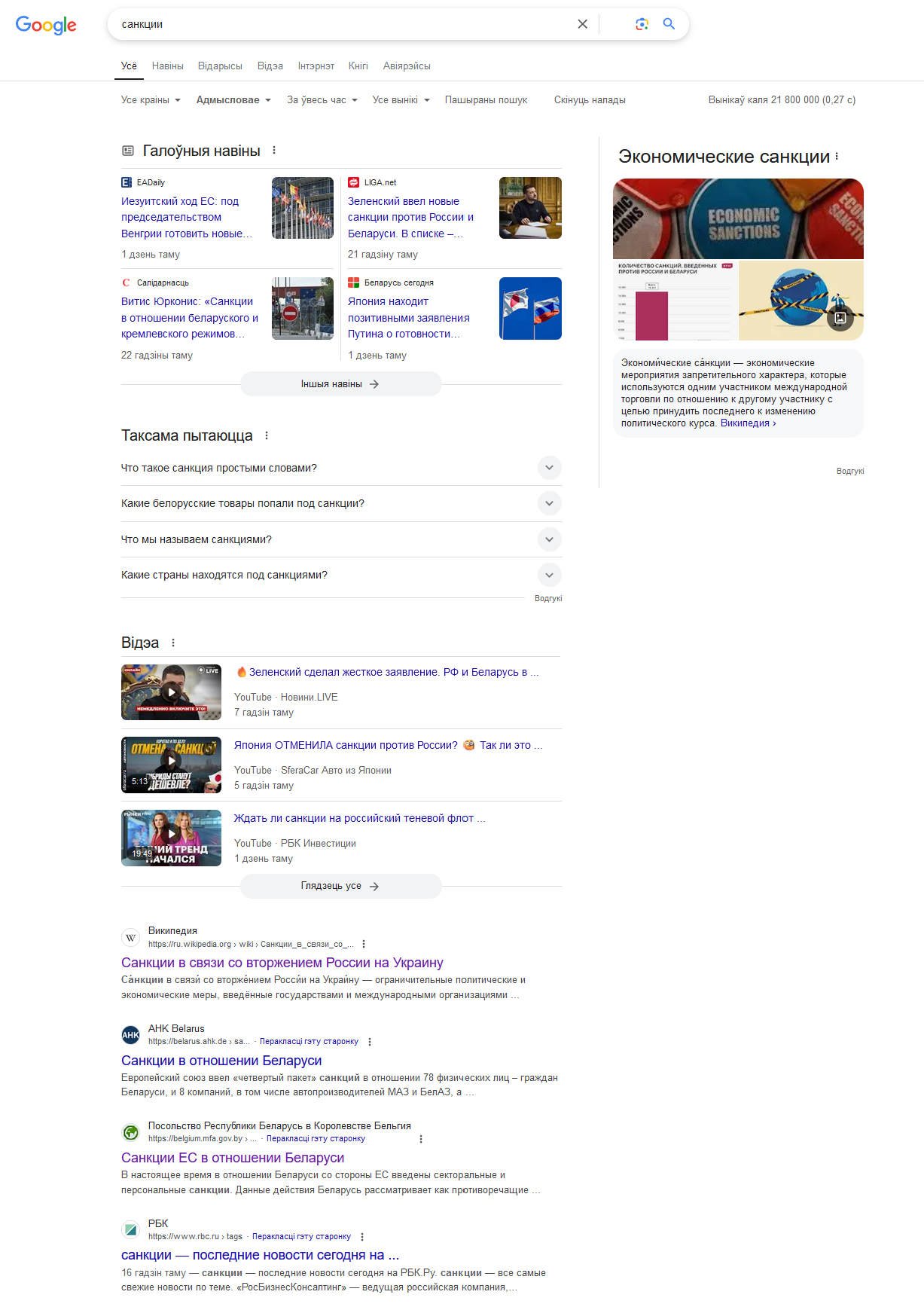
As seen from the search results for “sanctions” in Belarus, the first page of results contains Russian information sources: RBK, which continues to operate in the Russian Federation, and Sputnik Belarus, which is part of the information agency “Russia Today”.
Trigrams and YouTube Content Analysis
Publications containing the topic of “sanctions” in their descriptions were posted on 27 Belarusian YouTube channels. There were 65 publications that gathered about a million views.
Ten channels with the highest number of publications:
| Number of Views | Publications | |
| SB TV | 149,096 | 12 |
| NEWS.BY: Belarus and World News | 19,070 | 8 |
| Economics of Common Sense | Yaroslav Romanchuk | 11,631 | 7 |
| BELARUS 4 Mogilev | 2,143 | 4 |
| 6TV Biełaruś | 2,299 | 3 |
| Garantii NET | 11,065 | 3 |
| BELSAT NEWS | 40,860 | 2 |
| BelTA Information Agency | 17,4010 | 2 |
| Belarusian Investigative Center | 13,782 | 2 |
| CTVBY | 262,772 | 2 |
The video data was then transcribed, and using OpenAI, disinformation narratives in these posts were identified.
Representation of the top-20 trigrams obtained using Term Frequency-Inverse Document Frequency (TF-IDF):
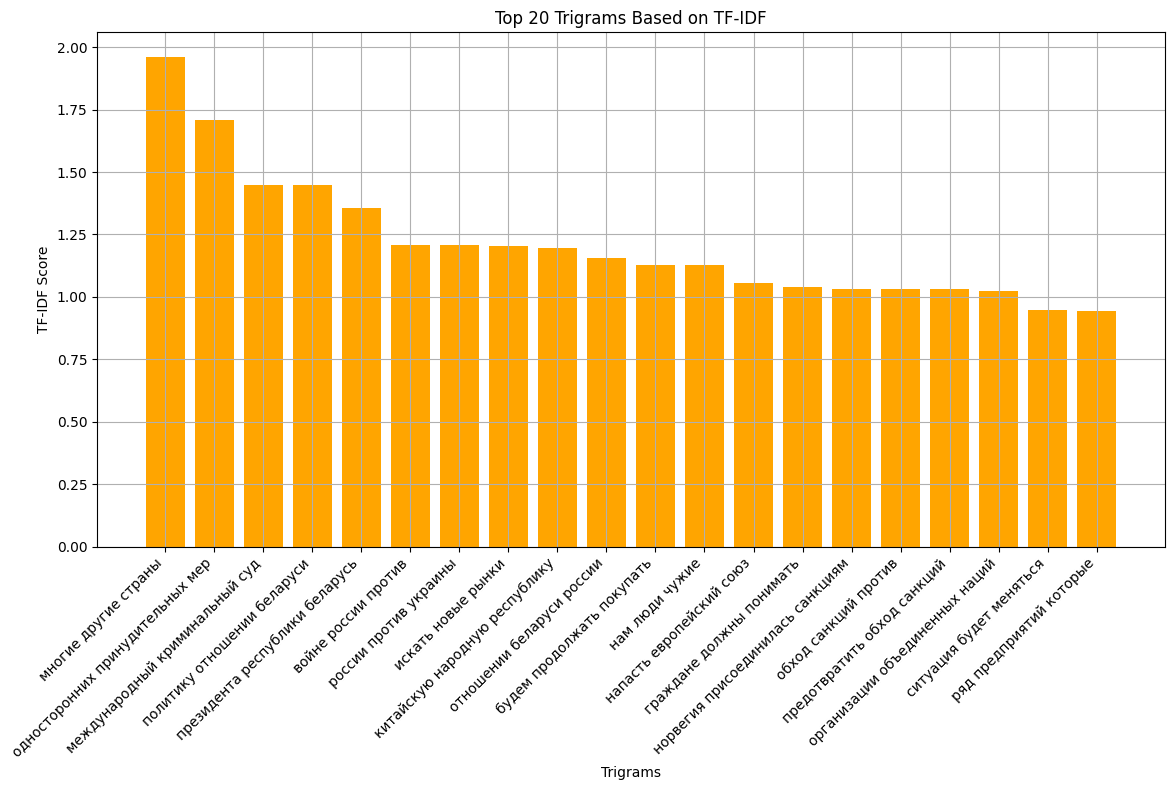
As shown by trigrams from YouTube channels, a significant part of the content is aimed at creating an international context, with frequent mentions of other countries and international organizations such as the International Criminal Court and the United Nations. There is also an emphasis on bypassing sanctions and attempts to present sanctions as unilateral coercive measures. In addition, the mention of “Russia’s war against Ukraine” and “Belarus-Russia relations” suggests attempts to link sanctions with current international conflicts and portray them as external pressure on Belarus. Narratives highlighting the necessity of continued cooperation with China and the search for new markets are also present, possibly aimed at showing alternative economic pathways.
Telegram Channel Analysis
Graph of the frequency of mentions of sanctions and the level of engagement (views):

Channels that most frequently publish information about sanctions:

Most of them are related to pro-government and toxic content Telegram channels.
Top-20 trigrams from Telegram using TF-IDF:

As seen from trigrams obtained from Telegram channels, significant attention is paid to sanctions against Russia, suggesting attempts to link the Belarusian situation to Russian events and strengthen the perception of sanctions as aggression against both states. The role of agricultural product exports and their impact on economic adaptation is also emphasized, possibly aimed at creating a positive perception of certain economic measures. Mentions of sanctions imposed by the UK and criminal cases also emphasize pressure on Belarus and Russia, which fits into the general narrative of external hostile influence.
Comparison of Trigrams from YouTube and Telegram
- On YouTube, trigrams largely focus on international organizations and conflicts, such as “Russia’s war against Ukraine” and “International Criminal Court.” This indicates an attempt to link sanctions with a broader geopolitical situation and emphasize international pressure on Belarus. In Telegram, on the other hand, the focus shifts to economic aspects, such as “agricultural product exports” and “sector adaptation,” suggesting an attempt to create an image of resilience and seeking opportunities under sanction pressure.
- Both sources use narratives related to sanctions against Russia, indicating an effort to demonstrate solidarity between Belarus and Russia in the face of international sanctions. Telegram also emphasizes legal aspects and legal consequences, using phrases like “years of imprisonment” and “criminal case initiated,” which reinforces the image of external aggression and repressive measures from the West.
- Thus, Telegram channels focus more on the economic and legal context, creating a narrative of internal resilience, while YouTube emphasizes the international aspect and external pressure. These differences highlight how different platforms adapt disinformation messages depending on their audience.
Identifying common and distinctive narratives, as well as the specifics of their dissemination across different platforms.
Consolidation of the Narrative on the Benefits of Sanctions for the Belarusian Economy and Their Portrayal as Aggression Against the People.
An example of such a publication, which gathered more than 67,000 views:
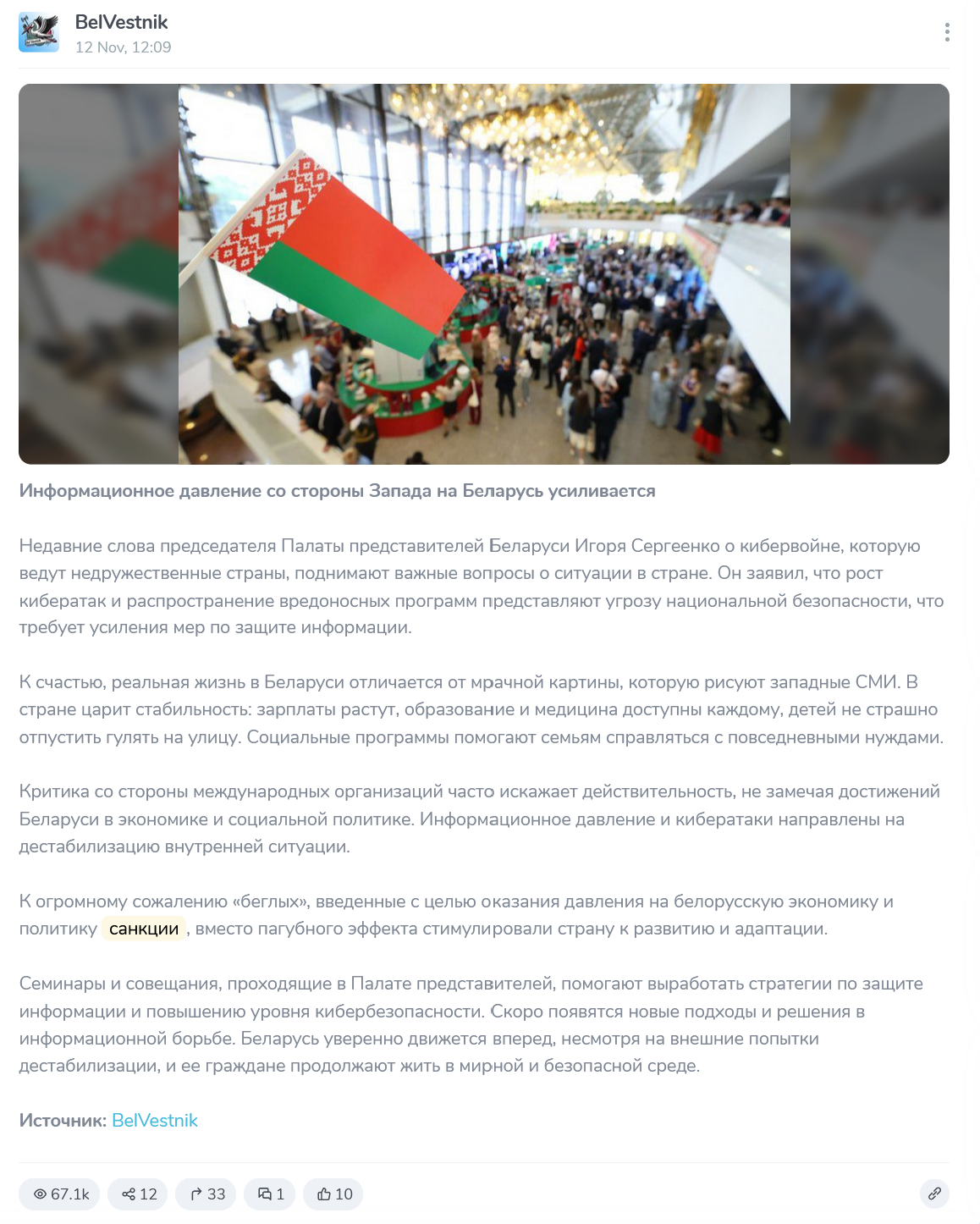
Let’s conduct a fact-check of this publication in the Telegram channel based on key statements and evaluate them for accuracy:
- “The cyberwar conducted by unfriendly countries poses a threat to national security”
It is quite likely that Belarus, like many other countries, faces cyberattacks. However, the statement about a “cyberwar” requires concrete evidence: data on the number of attacks, sources, and consequences. Without such data, this statement can be considered a propagandist exaggeration aimed at creating an image of an external enemy. - “There is stability in the country: wages are rising, education and healthcare are available to everyone”
An analysis of average wage data and its dynamics in Belarus shows that real incomes are not rising proportionally to inflation. For example, according to reports from independent sources and international organizations, recent years have seen a decline in purchasing power due to rising prices and economic sanctions. The accessibility of education and healthcare also requires clarification, as a number of reforms in these sectors have led to partial reductions in state funding. - “Criticism from international organizations often distorts reality”
This statement is a general accusation without specific examples. International organizations such as the UN and OSCE usually rely on independent sources and data. Distortion, if it does occur, must be supported by concrete facts and examples of incorrect event interpretation. - “Sanctions have stimulated the country towards development and adaptation instead of having a detrimental effect”
Sanctions imposed on Belarus are intended to exert pressure on the economy and limit financial flows related to the leadership. It is important to understand that while adaptation and the search for new economic pathways are possible, most economic analysts emphasize the negative impact of sanctions on Belarus’ economy. Development data may be selective and may not take into account the consequences for ordinary citizens and small businesses. - “Belarus is confidently moving forward despite external attempts at destabilization”
This statement is a typical element of state propaganda and is not supported by objective data. Levels of migration, economic instability, international isolation, and reports of political repression indicate that the situation in the country is far from stable or confidently moving forward.
This publication contains many propagandist elements aimed at creating a positive image of the Belarusian leadership and a negative image of external “unfriendly countries.” The main statements require additional verification with facts, data, and independent sources. Overgeneralized and exaggerated statements undermine trust in the presented material.
Another example of disseminating audiovisual disinformation noise is an adapted board game based on “Monopoly”:
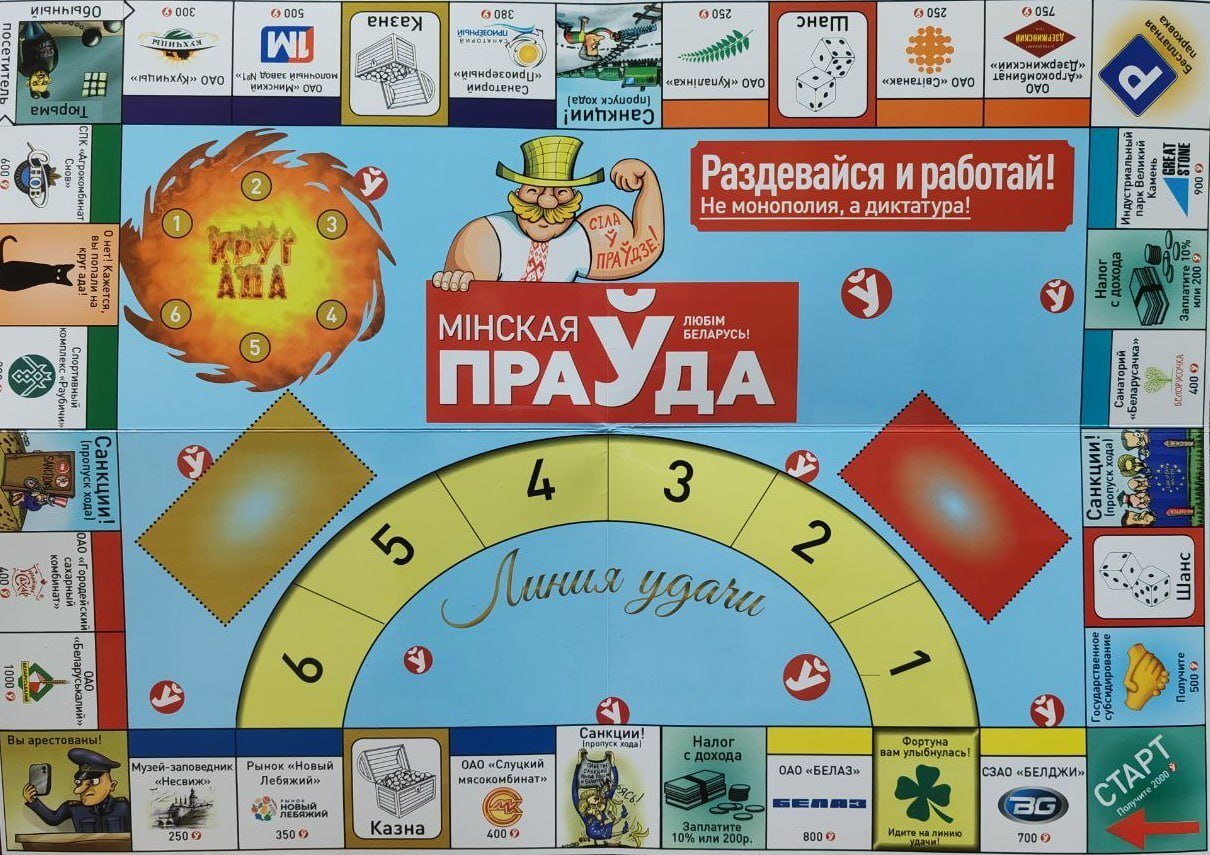
Verdict:
Findings on the need for regular fact-checking on the topic of sanctions:
- The analysis results revealed a high concentration of disinformation on the topic of sanctions in various sources, complicating the objective perception of the situation among citizens.
- Regular fact-checking is necessary to improve the quality of the information space, as it helps identify and counter disinformation, which can shape distorted perceptions among a wide audience. Through systematic analysis and fact-checking, a more reliable and objective picture of events can be provided, which is crucial for maintaining informed society.
Recommendations for Strategic Communications:
- It is recommended to avoid using the phrase “Sanctions against Belarus” so as not to create the impression of collective responsibility of citizens for the actions of the regime. Instead, use formulations that emphasize that sanctions are directed against specific power structures or individuals responsible for the current situation.
- Suggested alternative formulations such as “Sanctions against the Belarusian leadership” or “Sanctions against those responsible for repressions,” which better emphasize the responsibility of the authorities, not the entire population.
- A call to strengthen fact-checking efforts and improve public information to counteract the spread of false information and strengthen public understanding of the real reasons and consequences of sanctions.
- Emphasizing the importance of combating disinformation around sanctions, as disinformation is a powerful tool for manipulating public opinion and creating false perceptions of international processes.
This publication was developed by a research team under the leadership of Mikhail Doroshevich, PhD.

